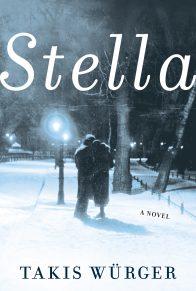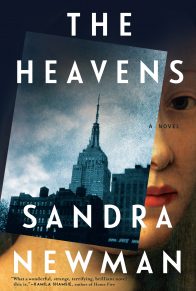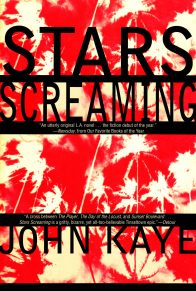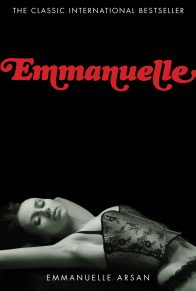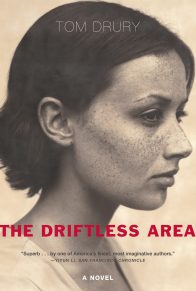At about nine p.m. on an unseasonably warm Saturday night in November of 1965, Gene Burk was sitting at a ringside table inside P.J.’s, a rock-and-roll dance club on Santa Monica Boulevard in West Hollywood. Headlining that weekend was the Bobby Fuller Four, a heavily electrified rockabilly band that was rapidly becoming the act to see within L.A.’s thriving grassroots club scene. On this, their first gig at P.J.’s, they would break all existing attendance records, and club owner Carl Reese would quickly sign them to an exclusive six-month contract.
Seated at a reserved table not far from Gene was Nancy Sinatra, one of the stars of The Ghost in the Invisible Bikini, a schlocky horror film in which Bobby Fuller was appearing as the leader of a hard-core surf band. At first Bobby had found the script unreadable and tried to drop out of the project, but Herb Stelzner, his manager and the owner of his new record label, convinced him that the movie exposure would help promote his first album, which he was now recording.
Right now Stelzner was standing in the back of the club, trying to appear nonchalant as a small shiver of fear skipped along his spine and spread slowly through his chest. Standing next to him, his face cold and reprimanding, was Carl Reese, who had just informed Stelzner that “the boss,” meaning Frank Sinatra, did not like Bobby dating his daughter. In fact, he wanted it to stop.
“They’re just a couple of kids having a good time,” Stelzner said, as he nervously tugged down the sleeves of his jacket. “It’s nothing serious.”
Carl Reese accepted a bourbon and soda from a passing waitress and raised the glass to his lips, pausing for a moment as his hazy blue eyes scanned the crowded room. He smiled when he recognized Gene Burk. He knew Gene was a cop. He’d seen him around town, in joints like The Zanzibar and Ernie’s Stardust Lounge, looking slightly uncomfortable as his partner, Eddie Cornell, hassled Hollywood’s growing coalition of dope pushers, pimps, and petty crooks. He also knew that Gene had grown up in Los Angeles and was basically a good guy, a music freak who was known to smoke an occasional joint when he was not on duty.
Gene turned his head. He saw Reese looking at him intently. Herb Stelzner said, “I’m going backstage.”
“Talk to Bobby. Tell him what Frank said.”
“I’ll tell him after the first show.”
Just before the houselights came down, Gene was joined by his younger brother Ray, who apologized for being late.
“Guess who’s here,” Gene said.
“Who?”
Gene gestured to his right. “Nancy Sinatra.”
Ray was silent for a moment. Then his heart began to speed up as he turned and looked at Nancy carefully for several seconds. During his senior year at Westside High they’d gone out once, double-dating with Ricky Furlong, a bashful boy and a baseball phenom who would later have a nervous breakdown during his rookie season in the major leagues.
Gene said, “When was the last time you saw her?”
“At State Beach, the summer before my sophomore year at Cal. I said hello but she looked right through me, like I was fucking invisible.”
When the Bobby Fuller Four took the stage, Ray was still staring at the back of Nancy’s head, cringing inside as he recalled their one and only date. He’d taken her to a party at someone’s house in Mandeville Canyon, a rich kid from Chadwick, this private high school in Palos Verdes. The rich kid’s parents were in Las Vegas for the weekend, guests of comedian Buddy Hackett, and by midnight, Ray and Furlong had finished a fifth of Wild Turkey and were both passed out in the backyard. Nancy, who had no real friends at the party and no way to get home, walked the two miles into Brentwood and called a cab.
At school on Monday Ray saw her in the cafeteria and tried to apologize, but she moved her head in denial, continuing to talk to her girlfriends as if he weren’t there. Then, just when he was about to give up, she turned her face toward him, and he could see the hostility in her stony eyes.
“Ray Burk,” she said, her icy smile only making his anguish worse, “you have no idea how lucky you are.”
“I don’t?”
“No.”
“Why?”
“Because I didn’t tell my dad.”
Now, a little over five years later, separated only by a row of tables, she was oblivious to Ray’s presence, clapping along with the audience as Bobby Fuller segued into his second number, “I Fought the Law,” a rocked-up version of the Crickets’ song that he was performing live for the first time. “This is a fucking great tune,” Gene said to Ray, who nodded but was not completely in the present. “Ray?”
“Yeah?”
“I know what you’re thinking.”
Ray turned and looked at his brother. “Tell me.”
“You’re thinking of going over there. Right?”
“Maybe. Just to say hello.”
“Don’t.”
“It’s been five years. She can’t still be pissed.”
“Forget about her,” Gene said, starting to sound a little aggravated. “It’s over.”
Midway through the first set, Gene found his attention drawn to a slender teenage girl who was leaning lazily against the far wall. She had a wide crooked mouth, and her unblinking eyes seemed haunted and trancelike as she stared into the smoke that swirled around her face. The phony ID that she carried in her plastic wallet said she was born in Cedar Rapids, Iowa, which was true, but the rest of the information, including her name and date of birth, was false.
Standing behind the girl was an older guy, small and wiry, wearing flowered bell bottom pants, a bowler hat, and a raspberry-red leather car coat. He was the rhythm guitarist for Billy J. Kramer and the Dakotas, a British band that was touring the U.S. with Gerry and the Pacemakers and the Dave Clark Five. Two days ago he’d met the young runaway backstage at a concert in Phoenix, Arizona, and he’d snuck her on the tour bus after the show. Right now she was staying in his room on the tenth floor of the Continental Hyatt House Hotel.
His name was Archie; hers, she told him, was Alice, which was her real name and not the name on her ID. They would only be together for one more night. She would then hitchhike up the coast, stopping first in Santa Barbara for a week before continuing on to Berkeley, where she would remain for one year, a girl who turned her back on her past and tried hard to keep the devil out of her heart.
After the show, Archie took Alice’s hand and led her backstage to meet Bobby Fuller. Nancy Sinatra was standing a few feet away, chatting with starlet Sharon Tate and her current boyfriend, hair stylist Jay Sebring. Sharon suggested that they all meet later at The Daisy, a private discotheque on Rodeo Drive in Beverly Hills.
“Ryan will be there,” Sharon said. “And so will Natalie Wood and Peter Fonda. Jay spoke to Peter this afternoon at his shop.”
Nancy shook her head. “I can’t,” she said, aware that The Daisy was her father’s favorite after-hours hangout, the only place where Mia Farrow, his new bride, felt comfortable. “I’ve got an early tennis game tomorrow morning.”
Alice was standing next to Archie. He was speaking rapidly in a slurred Cockney accent, explaining to Bobby how much he admired his songs, especially ‘memories of You,” the frantic rocker that closed his first set. Although Archie was obviously smashed, Bobby knew the praise was sincere and thanked him.
“When are you going to tour the U.K.?” Archie asked him.
“Next year.”
“If he’s got a hit album to support it,” Herb Stelzner said, after he moved over to join the group.
Archie turned to Stelzner and regarded him with suspicion. “Who’re you?”
“I’m Bobby’s manager and I own his label.”
“Then how about a show of confidence in your artist, mate. He’ll do fucking great in Britain,” Archie said. “He’s got the perfect sound. Last year Gene Vincent and the Blue Caps sold out the Albert Hall.”
Herb Stelzner smiled tolerantly. “Gene Vincent is a legend in the U.K. Plus the Animals headlined that tour. I know how to do my job, son,” he said, making his voice a little louder and stronger. “When it’s time to cross the ocean, we’ll be there.”
Throughout this discussion, Alice was staring at Sharon Tate, drawn deeply into her beauty. She was so irresistibly pretty that being in her presence made Alice feel suddenly, unexpectedly sad.
Bobby said to Archie, “Who’s your girlfriend?”
“My name is Alice, and I’m not his girlfriend,” she said with some defiance. “We hardly know each other.”
Alice broke away from Archie and came up behind Sharon Tate, hesitating for a moment with her hand raised before she tapped her gently on the shoulder. Sharon Tate turned and stared into Alice’s eyes, which now contained a peculiar brightness. “Yes,” she said. “What is it?”
“Are you a movie star?”
“Not yet,” Sharon said, glancing at Jay Sebring, who squeezed ner neck affectionately.
“You will be,” Alice said, her voice filled with both envy and desire. “I’d stake my life on it.”
Outside P.J.’s, Gene was saying goodbye to his brother, who was swaying in his tracks. “Be careful driving, Ray.”
“I’m okay. Don’t worry.”
“You’re not okay. You’re drunk.”
Ray lit a cigarette and stared into the street for several seconds before he spoke again. “I should’ve said something.”
“To who?”
“Nancy.”
“Fuck Nancy. She’s history. Start thinking about yourself,” Gene said.
“Stop giving me advice.”
“I’m your big brother. I’m supposed to give you advice.”
On his way back inside the club for the second show, Gene noticed Carl Reese standing near the backstage entrance, talking to a big man, bigger than Reese, and older–maybe sixty–who was wearing a blue knit polo shirt and white linen pants. His name was Jack Havana and, along with being the money behind P.J.’s, he was a known hoodlum and the largest purveyor of pornography on the West Coast. He and Reese were also partnered in several other businesses, including a chain of dry cleaners and the Arroyo Lodge and Racquet Club, a resort in Palm Springs.
Gene had met Havana for the first time back in 1949, when he was nine years old and Havana came by his father’s newsstand one Friday, offering him magazines that he could sell underneath the counter.
“I don’t peddle anything I can’t display,” Nathan Burk told Havana.
“You can make a bundle,” Havana replied.
“No thanks.”
Nathan’s wife Mona was standing a few feet away, listening to this conversation while she worked the register, which she did every weekday afternoon during the summer. When she caught Nate’s eye, she said, ‘maybe you should think it over.”
“I don’t need to think it over. I know what’s right.”
Jack Havana nodded thoughtfully, his expression calm and undisturbed. He let several seconds go by before he said, quietly, “You should listen to your pretty wife.”
Nathan Burk looked over at Mona, who everyone said was a dead ringer for Hedy Lamarr. She was staring at him with almost pity in her face. “He sells dirt,” he said to her. “Is that what you want?”
“I want a nice car and pretty clothes,” Mona said, turning away as the color rose in her cheeks, a color that was several shades lighter than her deep, rich, red hair. “I want things that money can buy. Is that so bad?”
Gene saw Jack Havana once more that summer. He and Ray had just walked out of the Vogue Theater after attending the matinee of Criss Cross, a gangster film starring Burt Lancaster as an armored car driver who gets double-crossed by his ex-wife, Yvonne De Carlo. At the corner of Wilcox and Hollywood Boulevard, while they were standing immobile, waiting for the light to change, Ray said, “What’s Mom doing in that car?”
“What car?”
“There.”
Ray was pointing at a white Lincoln Continental convertible that was moving slowly east on the palm-lined boulevard. In the front seat a woman with wavy red hair was sitting between two men. She was wearing a white sleeveless blouse and large sunglasses with white frames. Carl Reese was riding shotgun and the driver, Jack Havana, had his arm around her bare shoulder.
Gene’s heart was pounding in his chest. He shook his head. “That’s not Mom.”
“Yes it is.”
“No, it just looks like her.”
“It’s her,” Ray said. “What’s she doing with those men? She’s supposed to be helping Dad.” Ray looked both confused and angry as he started sprinting up the boulevard, trying to keep pace with the Lincoln. “Mom! Hey, Mom! Stop!”
Gene saw the woman in the car look over her shoulder and smile anxiously. A moment later she said something to Jack Havana, who nodded, and the big car suddenly turned and disappeared into the traffic moving north on Vine Street.
When Gene finally caught up with his brother, Ray was standing on the corner, trying to catch his breath. “That wasn’t her,” Gene said, still holding on to the lie. “It was someone else.”
“It was her,” Ray said, and his voice broke. “You’re wrong.”
Gene spun Ray around and slapped him hard across the cheek. “You better not say anything to Dad,” Gene warned, bringing his face forward and speaking into Ray’s trembling lips. “If you do, I’ll kill you.”
Inside Bobby Fuller’s dressing room, while Bobby and his brother Randy were reviewing the song list for their final show, Herb Stelzner stood silently in the corner, puffing on a cigarette. Slouched next to him on a folding metal chair was a scared-looking girl wearing frayed jeans and weather-cracked boots. Resting on her lap was a battered twelve-string Martin guitar.
She whispered to Stelzner, “I’m a songwriter.”
Stelzner nodded. “That’s good.”
“And a singer. But mostly a songwriter. I was hoping I could get you to listen to my songs.”
“Send them over to my office.”
“I don’t have anything on tape.”
“Then I can’t help you.”
“Yes you could,” she said, almost desperately. “You could listen to me sing.”
Bobby Fuller glanced at the girl and smiled. “I’ll listen to you, honey,” he said, and turned his head toward Stelzner, who said: “I gotta talk to you after the show.”
“About what?”
“It’ll just take a couple of minutes.”
“I’m busy after the show. Let’s do it now.”
Bobby gave his brother a quick nod, and the girl, looking uncomfortable, raised herself from her chair. She said, ‘do you want me to leave, too?”
“Yeah. It’s business,” Bobby said. “Just give us five.”
After Randy Fuller followed the girl outside, Bobby turned toward the full-length mirror and smiled at his reflection. Then he took out his comb and ran it twice through his shiny black hair. ‘reese wants you to sign a contract,” Stelzner said. He was still leaning against the wall with his arms now folded across his chest. “Three grand a week. Divide it any way you want.”
“Three grand a week,” Bobby said, continuing to smile as he straightened the knot in his skinny tie. “That’s big time. Is that what you wanted to tell me?”
Stelzner unfolded his arms and slowly shook his head, maintaining the serious expression on his face, the same expression he’d worn since he’d entered the dressing room. “No. There’s something else,” he said. ‘reese said some people are concerned about Nancy.”
“Concerned? About what?”
“About you and her. They don’t think the combination is a good idea.”
“Fuck them,” Bobby said with a look, and he grabbed his guitar. “We’re just friends.”
“Bobby, trust me on this. I–”
Bobby strummed a B-flat power chord that stopped Stelzner’s voice in mid-sentence. “When it comes to my career, I’ll listen,” Bobby said. “But stay out of my private life.”
“You fuck up your private life, you have no career. You have nothing.”
Bobby’s face tightened as he started out the door, then he stopped and gave Stelzner a quick sharp glance. ‘don’t threaten me, Herb,” he said, after some hesitation. “That doesn’t feel right.”
“It’s not me,” Stelzner said. “It comes from Frank.”
“We’re just friends. I told you.”
Stelzner just stared at him. “I’ll pass that along.”
“Do that,” Bobby said, trying hard to contain his anger; then he brushed some lint off the front of his sportscoat and walked swiftly out the door.
Driving back to his apartment that night, Ray Burk sideswiped a parked car on the corner of Shoreham Drive and San Vicente Boulevard. Fifteen stories above the street, Diane Linkletter, the daughter of radio and TV personality Art Linkletter, was sitting on her balcony in the Shoreham Towers, tripping on a ten-milligram dose of LSD. Because she was too stoned to hear the crash–on this night her gaze was wide-ranging but inward–she never once looked down. (Two years later, however, feeling hollow and detested and drained of hope, Diane would climb over her iron balcony and–turning her back to the world and taking in a gulp of air–plunge to her death.)
In the spring of 1969, four years after he registered her uncomplicated but unmistakable beauty inside a crowded rock-and-roll nightclub, Ray Burk attended a large housewarming party for actress Sharon Tate and her husband, Polish film director Roman Polanski, at their newly leased hillside home off Benedict Canyon. At that party, along with the drug dealer who supplied Diane Linkletter with her acid, were numerous Hollywood celebrities, including Jack Nicholson, Sonny and Cher, and all the members of the Mamas and Papas, except Mama Cass.
Ray was the guest of producer Marty Fishkin, who had recently optioned his original screenplay, “Dreamsville,” which Warner Brothers was eager to finance if Robert Redford or Steve McQueen agreed to play the male lead.
“Don’t drink too much and try to look smart,” Fishkin advised Ray. “And remember, they’re the stars and you’re not.”
Nancy Sinatra was also at this party but left early, embarrassed by the nude swimming and the open use of marijuana and cocaine. Ray, surprisingly, escorted her off the property.
“She was fucking furious,” he told Gene the following day, “especially at Polanski, who she called a “creepy little dwarf.””
Gene said, “You didn’t bring up any of that old high school stuff?”
“No way. She didn’t even recognize me with my beard and all my hair. When I finally told her who I was, she just stopped and stared at me for about ten seconds. Then she cracked up.”
“Was she impressed?”
“That I was a screenwriter? Yeah,” Ray said and laughed. “I guess you can say that.”
As Ray and Nancy walked down the steep driveway to her car, which was parked outside the main gate on Cielo Drive, they passed a group of stoned freaks wearing tie-dyed shirts and buckskin jackets. In the deepening darkness, the secrecy and spite in their faces was invisible, and the only words spoken came from a girl named Alice who was clutching a handful of bright orange sunflowers.
She said, “I always get a funny feeling in my mouth when I’m around strangers. It’s sweet and sour at the same time, like I’ve swallowed a piece of homemade lemon pie.”
Just before Nancy drove away, she asked Ray about his older brother. “Is he still a cop?”
“No. Not anymore. He quit in “67, after he came back from Monterey Pop.”
“What’s he doin”?”
“He’s been helping my dad at the newsstand. On the side he deals in rock-and-roll memorabilia. He’s thinking about becoming a private investigator.”
Nancy’s eyes had a lost look, as if her mind was moving back in time. ‘did he tell you we spoke after Bobby Fuller died?”
“No.”
“Gene was cool, but he was looking for something that wasn’t there. I think he got a little carried away.”
“Sounds like Gene. He gets that way sometimes. We both do.”
“Yeah, I know,” Nancy said, and now she was smiling. “Tell him I said hello.”
“I will.”
In their conversation the next day, just before he hung up, Gene told Ray, “I may not know much, but I know that Bobby Fuller didn’t kill himself. That I know for sure.”
Excerpted from The Dead Circus
©2002 by John Kaye. Reprinted with permission from Grove Atlantic, Inc. All rights reserved.





